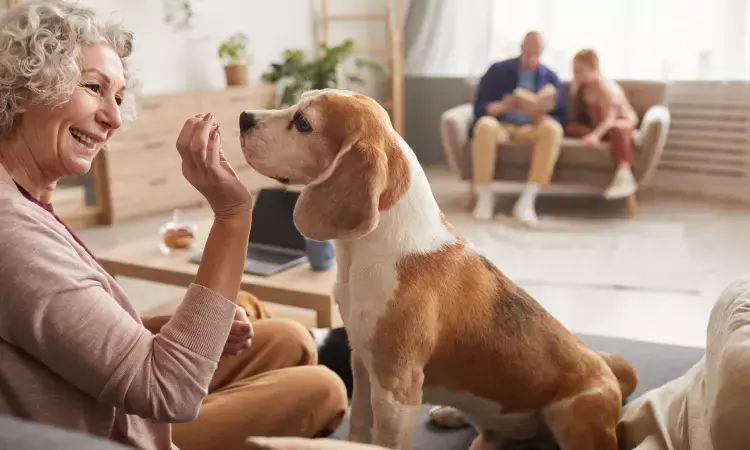- Home
- Medical news & Guidelines
- Anesthesiology
- Cardiology and CTVS
- Critical Care
- Dentistry
- Dermatology
- Diabetes and Endocrinology
- ENT
- Gastroenterology
- Medicine
- Nephrology
- Neurology
- Obstretics-Gynaecology
- Oncology
- Ophthalmology
- Orthopaedics
- Pediatrics-Neonatology
- Psychiatry
- Pulmonology
- Radiology
- Surgery
- Urology
- Laboratory Medicine
- Diet
- Nursing
- Paramedical
- Physiotherapy
- Health news
- Fact Check
- Bone Health Fact Check
- Brain Health Fact Check
- Cancer Related Fact Check
- Child Care Fact Check
- Dental and oral health fact check
- Diabetes and metabolic health fact check
- Diet and Nutrition Fact Check
- Eye and ENT Care Fact Check
- Fitness fact check
- Gut health fact check
- Heart health fact check
- Kidney health fact check
- Medical education fact check
- Men's health fact check
- Respiratory fact check
- Skin and hair care fact check
- Vaccine and Immunization fact check
- Women's health fact check
- AYUSH
- State News
- Andaman and Nicobar Islands
- Andhra Pradesh
- Arunachal Pradesh
- Assam
- Bihar
- Chandigarh
- Chattisgarh
- Dadra and Nagar Haveli
- Daman and Diu
- Delhi
- Goa
- Gujarat
- Haryana
- Himachal Pradesh
- Jammu & Kashmir
- Jharkhand
- Karnataka
- Kerala
- Ladakh
- Lakshadweep
- Madhya Pradesh
- Maharashtra
- Manipur
- Meghalaya
- Mizoram
- Nagaland
- Odisha
- Puducherry
- Punjab
- Rajasthan
- Sikkim
- Tamil Nadu
- Telangana
- Tripura
- Uttar Pradesh
- Uttrakhand
- West Bengal
- Medical Education
- Industry
Owning pets helps to cope with loneliness and cognitive decline

In the past few decades, the number of individuals living alone has shown an upward trend. In 2021, the proportion of single-person households in the United Kingdom (UK) and the US reached 29.4% and 28.5%, respectively.
Loneliness is a potential mediator in the association of living alone with dementia among older adults. Contrary to living alone,10 pet ownership (eg, raising dogs and cats) is related to reduced loneliness.
To explore the association of pet ownership with cognitive decline, the interaction between pet ownership and living alone, and the extent to which pet ownership mitigates the association between living alone and cognitive decline in older adults.
A recent study in JAMA Network suggests that pet ownership can be associated with slower cognitive decline among older adults living alone. Slower rates of decline in verbal memory and verbal fluency among individuals living alone, but not among those living with others. Pet ownership offset the association between living alone and declining rates of verbal memory and verbal fluency.
Researchers designed a cohort study used data from waves 5 (June 2010 to July 2011) to 9 (from June 2018 to July 2019) in the English Longitudinal Study of Ageing. Participants included adults 50 years and older. Data were analyzed from April 1 to June 30, 2023. Pet ownership and living alone in wave 5. In waves 5 to 9, verbal memory and verbal fluency were assessed, and composite verbal cognition was further calculated.
The key findings of the study are
- A total of 7945 participants included, the mean (SD) age was 66.3 (8.8) years, and 4446 (56.0%) were women. Pet ownership was associated with slower rates of decline in composite verbal cognition (β = 0.008 [95% CI, 0.002-0.014] SD/y), verbal memory (β = 0.006 [95% CI, 0.001-0.012] SD/y), and verbal fluency (β = 0.007 [95% CI, 0.001-0.013] SD/y).
- Three-way interaction tests showed that living alone was a significant modifier in all 3 associations. Stratified analyses showed that pet ownership was associated with slower rates of decline in composite verbal cognition (β = 0.023 [95% CI, 0.011-0.035] SD/y), verbal memory (β = 0.021 [95% CI, 0.008-0.034] SD/y), and verbal fluency (β = 0.018 [95% CI, 0.005-0.030] SD/y) among individuals living alone, but not among those living with others.
- Joint association analyses showed no significant difference in rates of decline in composite verbal cognition, verbal memory, or verbal fluency between pet owners living alone and pet owners living with others.
Researchers concluded that " In this cohort study, pet ownership was associated with slower rates of decline in verbal memory and verbal fluency among older adults living alone, but not among those living with others, and pet ownership offset the associations between living alone and declining rates in verbal memory and verbal fluency. Further studies are needed to assess whether pet ownership slows the rate of cognitive decline in older adults living alone."
Reference: Li Y, Wang W, Zhu L, et al. Pet Ownership, Living Alone, and Cognitive Decline Among Adults 50 Years and Older. JAMA Netw Open. 2023;6(12):e2349241. doi:10.1001/jamanetworkopen.2023.49241.
MSc. Neuroscience
Niveditha Subramani a MSc. Neuroscience (Faculty of Medicine) graduate from University of Madras, Chennai. Ambitious in Neuro research having worked in motor diseases and neuron apoptosis is interested in more of new upcoming research and their advancement in field of medicine. She has an engrossed skill towards writing and her roles at Medical dialogue include Sr. Content writer. Her news covers new discoveries and updates in field of medicine. She can be reached at editorial@medicaldialogues.in
Dr Kamal Kant Kohli-MBBS, DTCD- a chest specialist with more than 30 years of practice and a flair for writing clinical articles, Dr Kamal Kant Kohli joined Medical Dialogues as a Chief Editor of Medical News. Besides writing articles, as an editor, he proofreads and verifies all the medical content published on Medical Dialogues including those coming from journals, studies,medical conferences,guidelines etc. Email: drkohli@medicaldialogues.in. Contact no. 011-43720751


